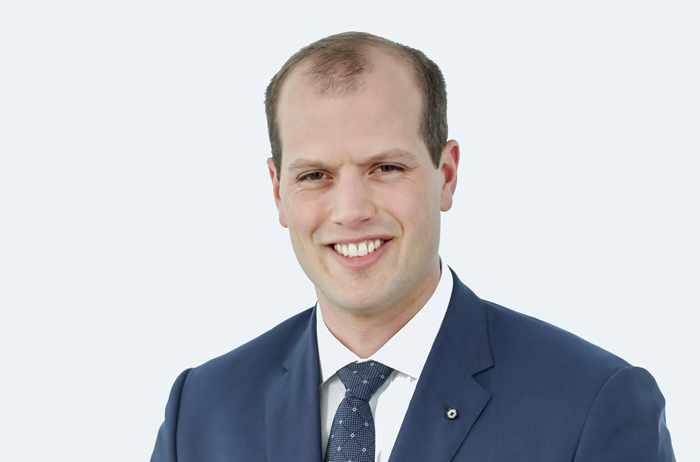Today, The Pierre Elliott Trudeau Foundation announced the recipients of the 2018 Pierre Elliott Trudeau Foundation Doctoral Scholarship, naming two University of Alberta Faculty of Arts doctoral students, Billy-Ray Belcourt (English and Film Studies) and William Schultz (Sociology).
Valued at $40,000 per year for three years [plus a $20,000 annual research and travel allowance], the award is one of the most prestigious doctoral scholarships in Canada, attracting scholars from the social sciences and humanities who have distinguished themselves through academic achievement and a passion for public engagement.
Belcourt and Schultz - the 9th and 10th scholarship recipients from the University of Alberta since 2003 - join a diverse network of over 400 researchers and scholars committed to applying their knowledge and skills to address Canadian and global society's most pressing issues.
As one of just 15 newly-appointed Pierre Elliott Trudeau Foundation scholars, Belcourt will continue to build on an already impressive graduate career. In 2015, he became thefirst-ever First Nations student from the U of A to win a Rhodes scholarship, and earlier this month, he wasawarded the Griffin Poetry Prize for his debut book of poems, This Wound is a World.

2018 Pierre Elliott Trudeau Foundation scholar Billy-Ray Belcourt
His doctoral research, entitled, "The Indigenous Paranormal: Non-Being and Freedom in the Aftermath of the Long Twentieth Century", will likely, in his words, push the boundaries of conventional academic writing. Through the exploration of art, poetry and films created by First Nations cultural practitioners, he will argue that "we live in the aftermath of colonial horror called the paranormal."
"Not just as stereotypical ideas about ghosts and haunting, but also what it means to follow the normal or natural as someone who in the past experienced violence - particularly the horrors of residential schooling, reservations, and of murdered and missing Indigenous women," he explained to the University of Alberta's Folio in February.
Belcourt's work has been described as "politically necessary", a statement that recognizes the contemporary urgency of his work, but also points to its potential impact down the line.
"I am overjoyed that they saw in my project kernels of political possibility; that my work and I are suited to contributing to the difficult labor of social justice," he says. "I've already been welcomed with open arms into the energetic and dynamic group of scholars, mentors and fellows that operate and collaborate under the banner of the Trudeau Foundation."
Belcourt says the generous funding and community-driven ethos will have a significant impact on his doctoral studies, adding that it will enable him to attend conferences, exhibitions and literary events that showcase writers and artists relevant to his research.
"I also hope to bring a host of queer, trans and two-spirit Indigenous writers to the University of Alberta at some point for a symposium of sorts," he says.

2018 Pierre Elliott Trudeau Foundation scholar William Schultz
Sociology PhD student William Schultz, who joins Belcourt as a Trudeau Foundation scholar, is "really excited" about receiving the honour.
"I'm still pinching myself that it's happened," he says. "Honestly, I never really expected to be in academia, let alone win one of the biggest scholarships in Canada, so finding myself in this spot is really pretty cool."
Working with supervisor Sandra Bucerius and committee member Kevin Haggerty, Schultz's research looks at how people live, adapt and survive in Canadian prisons, particularly in the context of Canada's opioid crisis, and how that in turn has thrust prison systems and law enforcement agencies across the country into crisis.
"My research focuses on how fentanyl and the opioid crisis is influencing prisons - both prisoners and correctional officers, and to date, I have mostly done research close to home," he says. Entitled, "Deadly Attraction: Fentanyl, Drug Deaths and the New Crisis in Canadian Prisons", Schultz plans to use the scholarship funds to expand his research areas to other sites across Western Canada.
Schultz credits Bucerius and Haggerty with championing his research within Alberta, and at the national level.
"They gave me amazing support, advice, and training," he says. "Without them, I wouldn't have ever gotten close to the Trudeau, let alone win it."
In granting doctoral scholarships, awarding fellowships, appointing mentors, and holding public events, the Pierre Elliott Trudeau Foundation encourages critical reflection and action infour areas important to Canadians: human rights and dignity, responsible citizenship, Canada's role in the world, and people and their natural environment.
Read more about the Pierre Elliott Trudeau Foundation Doctoral Scholarship at the University of Albertahere.